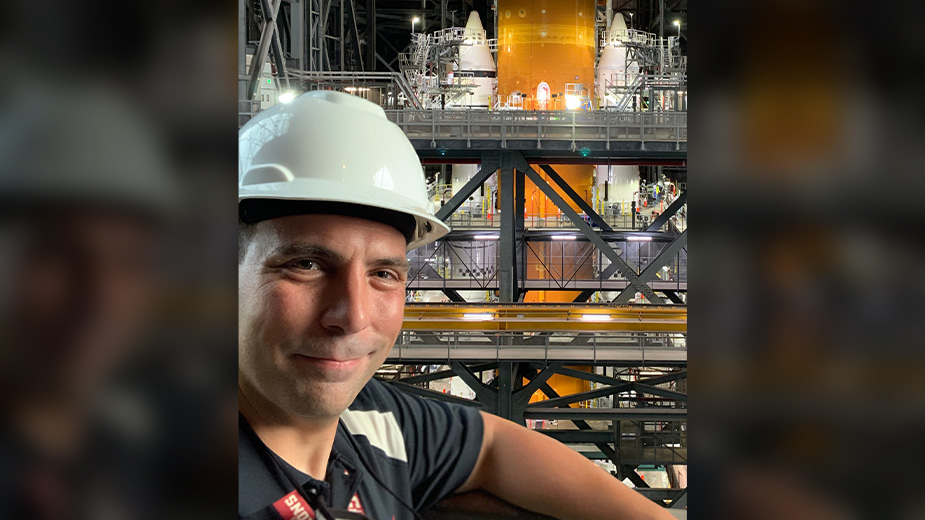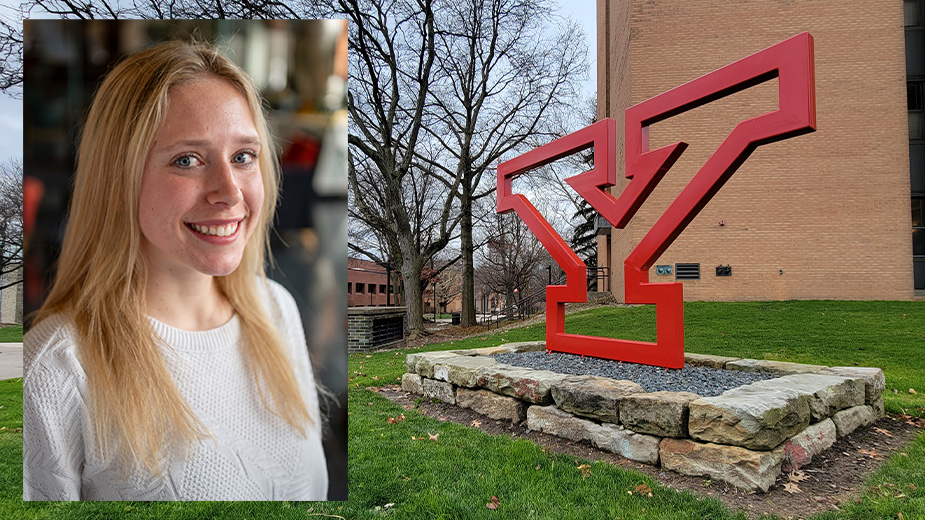St. E’s Looks Overseas to Relieve Nurse Shortage
YOUNGSTOWN, Ohio – Finding enough nurses has been a challenge, but Mercy Health St. Elizabeth Youngstown Hospital has found a solution by looking to other countries.
Faith Benard and Kristel Syre Delos Santos are among the nurses who recently came to the United States as part of an effort to alleviate the nationwide nurse shortage. The women also bring a fresh perspective on the practice of medicine.
Benard, of Kenya, has 15 years of experience as a nurse in a country where she says people are underserved by the medical field.
“What brought me here was a passion to serve humanity in a different environment,” Benard says. The United States, she says, is known for being a leader in technology and medical science.
“At some point I felt the need to get out, see how things are done, especially in the West,” Benard says. “I felt I should come here and explore, see what is done differently, so that I can even borrow a few things and maybe be able to [bring] it back home, see how we can improve nursing as a profession.”
Delos Santos came from the Philippines, where she had worked three years as a nurse in the medical-surgical unit of a small hospital.
She had dreamed of coming to the United States since she was a child but had been hesitant to do so because most nursing programs required at least five years of experience.
When she learned that the Mercy Health option required only two years of experience, she jumped at the chance. After her interview, she had to wait a day to learn if she got the job and found that she could not sleep.
“God answered my prayers and they accepted me,” Delos Santos says, adding she was told it could take three years to process her immigration. It went through in nine months.
Delos Santos has children, who are in Hawaii staying with relatives while she gets settled in Ohio. When things are more stable, she plans to bring them here.
She also looked at a program in the United Kingdom. That one however, brought in nurses on a student visa and she did not want to go through more years of schooling.
“I prefer to come to the United States instead for better career opportunities for me and for my kids,” Delos Santos says.
Both Benard and Delos Santos took the same tests U.S. nurses take during the application process. Then they were interviewed about their interests and reasons for wanting to come here. It can be a long process to get the immigration paperwork processed and earlier this spring, the U.S. State Department announced a freeze on new green card petitions for workers in the same job classification as nurses.
Mercy Health St. Elizabeth started the process to bring these nurses here well before that announcement.
“I started doing the interviews for this 21/2 years ago,” says Brittney Zubick, director of inpatient nursing at St. Elizabeth Hospital. “To even see them here, it’s so awesome to watch it finally happen.”
Zubick says she questioned them thoroughly to make sure they were coming in for a job that they really wanted to take. As they discussed their skills and the positions, Zubick says she found it interesting to hear how much being a nurse in other countries is different than in this country.
Benefits Hospital
Not only are the international nurses getting a chance to learn about medicine in another place and follow their goals, but the hospital and patients also are benefiting.
Colleen Shaughnessy is a nursing supervisor on an orthopedic trauma medical-surgical unit, which focuses on bone injuries at St. Elizabeth Youngstown. She has four international nurses – three from Kenya, including Benard, and one from the Philippines – in her department.
“Actually, in the last week and a half, I had patients all recognize them for their kind, compassionate care,” Shaughnessy says. “I think, and this is just from my observation, they are not as rushed as us Americans. They go a little slower and they spend a little more time for a calm atmosphere with their patients.”
Delos Santos’ supervisor, Cathy Ronci, is in charge of nurses in a medical-surgical oncology unit, which can be very fast paced. Ronci says she often sees nurses in a rush and patients not receiving the one-on-one attention they deserve.
Ronci had 14 openings in her department last year. She has since added five nurses from the Philippines.
“They are doing remarkable things,” Ronci says. “They brought the staff morale to the highest, just because of their addition to our program.”
She says hiring international nurses has provided more diversity.
“It just shows what diversity and what we can bring to our ministry. … We’re doing great things here. We’re doing great things for nursing, but also for the ministry,” Ronci says.
And the international nurses are not the only ones learning. Local nurses may appreciate even more all the opportunities they have had in their careers.
“It’s nice to listen to how they did stuff in their country, the differences,” Shaughnessy says, “and that they had giraffes running in their backyard.”
The comment brought familiar laughter from all four of them.
Worldwide Shortage
The United States is not the only country with a nurse shortage.
Benard and Delos Santos say they have dealt with the problem in their own countries.
Delos Santos says she twice worked 24 straight hours because of staffing shortages and has worked on a floor with only two nurses to care for 10 to 15 patients.
She says nurses in the Philippines do not get as much respect and are treated more like aides to the doctor.
Benard tells a similar story of working where only two nurses were in the medical-surgical department with more than 45 patients. She says in Africa the nurse shortage is extreme.
Instead of being able to provide individual care, Benard says nurses end up working long hours and choosing which individuals they can help and which ones they cannot.
“I feel we’ve committed crimes against humanity,” Benard says, adding it leads to the nurses feeling overwhelmed.
“When you look at our governments, it’s like they don’t give priority to health care,” Benard says, “and people struggle, struggle to pay. … The common people don’t have insurance.”
She is impressed that when someone here suffers a broken hip, it is fixed, while in her home country they may have to go without help. Here, patients receive very expensive drugs, which people there cannot afford.
“People die of complications,” Benard says.
“We lack the proper medicine. We lack the proper facilities. Even the beds that we have, you can’t prop up a patient on the bed. It’s just pathetic.”
Likewise, Delos Santos says in the Philippines most people do not get annual checkups because they cannot afford them.
“I love the United States because it’s far more different than the Philippines because your health care here is far more advanced. … There’s a better opportunity in the United States,” Delos Santos says. “Better benefits too. You’re well-compensated and even your children get a good quality of education and better kinds of opportunities when they grow up.”
Ronci says some people here may not appreciate how lucky they are.
“Our industry is very advanced, and we should all appreciate it,” Ronci says. “We’re lucky to have the health care we have here.”
Delos Santos and Benard have made three-year commitments to St. Elizabeth Hospital. Both indicated they would stay beyond that if asked.
If their supervisors have any say about it, that is exactly what will happen.
With an immigrant visa good for 10 years, Delos Santos says if she stays for five years she can apply for dual citizenship, which will give her the opportunity to travel between the two countries. She looks forward to the opportunities that could create for herself and her children.
“Just now listening to them talk, I have tears because when I think about what they gave up to come here, I hope we provide them with everything they expect,” Shaughnessy says.
Benard wants to practice being a nurse as long as she is called to do so. She has learned things she has never seen before in her 15 years in nursing.
“If one day I wake up and I feel like I don’t want to do good work, I will know my calling is over. But I still feel I have the energy to continue working as a nurse,” she says.
Copyright 2024 The Business Journal, Youngstown, Ohio.



